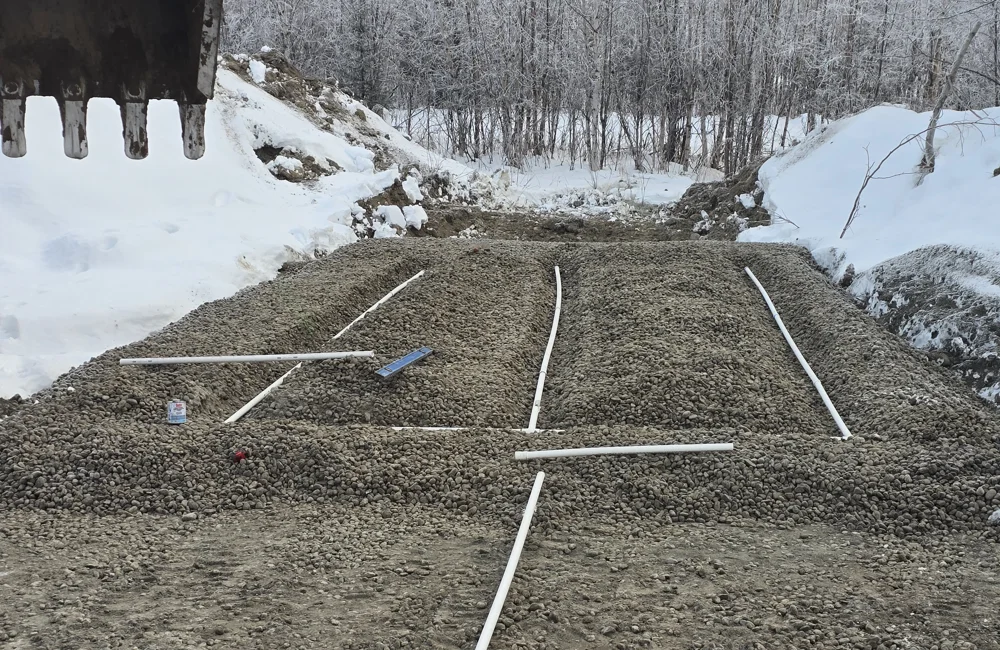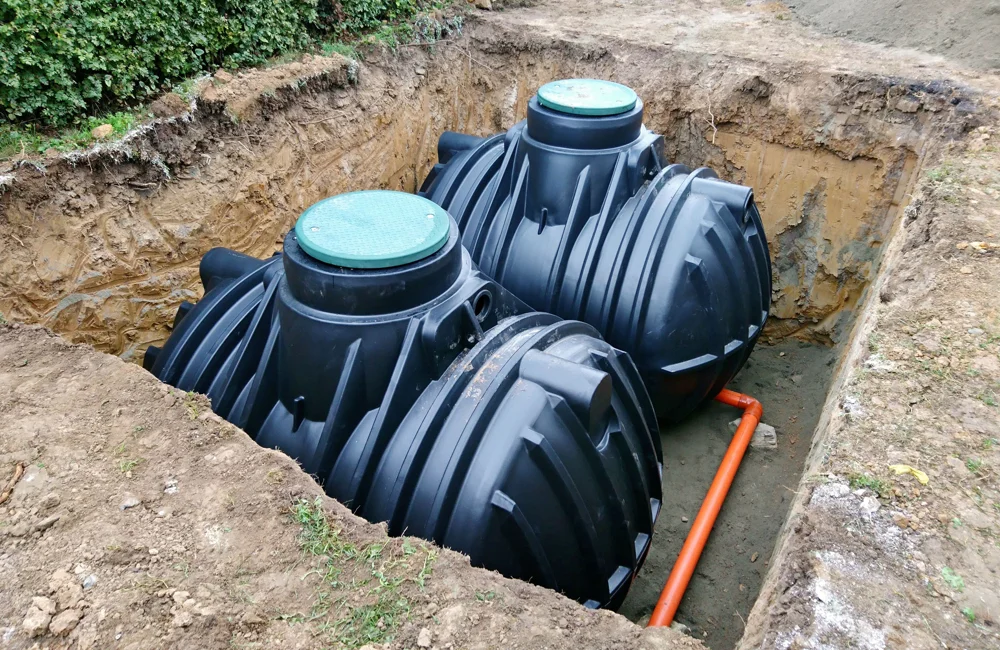Septic System Installation
Scenic Excavation specializes in providing reliable septic systems for residential and commercial properties. Properly installed and maintained septic systems are crucial in managing wastewater safely and effectively, which ensures that your property stays clean and functional. Whether you’re installing a new system, replacing an outdated one or repairing your current one, our team is committed to getting the job done right.
We are here to make sure that your system meets your needs. This could include custom installations or comprehensive repairs. We use quality materials to ensure long-lasting performance and code compliance. We are committed to quality workmanship and customer satisfaction to make the process seamless from start to finish.
Maintaining a healthy septic system is essential for protecting your home, business or property. Scenic Excavation provides guidance to help you understand your options, whether you need a poly or concrete tank or advice on routine maintenance. Your septic system will run smoothly for years to come.
Professional Septic Tank Installation Service

Septic System Installation and Repair
Proper installation and repair of your septic system are critical for its efficiency and longevity. At Scenic Excavation, we specialize in handling every aspect of septic system installation, from evaluating your property’s needs, to selecting the right components and ensuring proper placement. Properly installing your system reduces the risk of future issues.
We can help you determine the best location for your septic system. Knowing your soil composition, property size, and local regulations are necessary to ensure your system is trouble free. Our systems are designed to handle the extremes of Alaska!
For repairs, our experienced team quickly identifies issues like leaks, clogs, or structural damage to get your system back in working order. Whether it’s repairing drain lines, replacing damaged components, or addressing tank issues, we prioritize prompt service and long-term solutions. Regular maintenance and timely repairs can extend the life of your septic system and prevent costly problems.

Are Poly Tanks or Steel Tanks Better for Septic Systems?
Choosing the right septic tank material is essential for ensuring your system’s performance and longevity. Poly and concrete septic tanks are the most common options, each with distinct advantages. Understanding their differences can help you make the best decision for your property.
Poly (Plastic) Septic Tanks
Poly septic tanks are easier and faster to install because they are lightweight. Their seamless construction is highly resistant to rust and corrosion, which reduces the risk of leaks. This makes poly tanks an excellent choice for properties in areas with acidic soil or water. They are durable and can last for decades with proper maintenance. Because they are lighter though, they may be more susceptible to shifting in areas with high water tables if not properly anchored.
Steel Septic Tanks
Steel septic tanks are valued for their strength and durability. They are more resistant to impact damage than poly tanks and can handle heavier loads, making them a good option for properties with vehicle traffic or compacted soil. Their rigid construction also helps maintain structural integrity over time. However, steel is prone to rust and corrosion, especially in areas with high moisture or acidic soil, which can lead to leaks if not properly maintained. Regular inspections and protective coatings are necessary to extend their lifespan.
When choosing between a poly or steel tank, factors like soil conditions, water table levels, and maintenance requirements should be considered. Poly tanks are lightweight, resistant to rust, and easier to install, while steel tanks offer durability but require ongoing care to prevent corrosion. Scenic Excavation can help assess your property’s needs and recommend the best option. Both choices provide reliable wastewater management when installed and maintained properly.
Frequently Asked Questions(FAQ)
1. What is the process for installing a septic system?
2. How long does it take to install a septic system?
3. What are the signs of a failing septic system?

